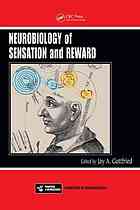

Most ebook files are in PDF format, so you can easily read them using various software such as Foxit Reader or directly on the Google Chrome browser.
Some ebook files are released by publishers in other formats such as .awz, .mobi, .epub, .fb2, etc. You may need to install specific software to read these formats on mobile/PC, such as Calibre.
Please read the tutorial at this link: https://ebookbell.com/faq
We offer FREE conversion to the popular formats you request; however, this may take some time. Therefore, right after payment, please email us, and we will try to provide the service as quickly as possible.
For some exceptional file formats or broken links (if any), please refrain from opening any disputes. Instead, email us first, and we will try to assist within a maximum of 6 hours.
EbookBell Team

4.4
102 reviewsEmphasizing the role of reward in reinforcing behaviors, the book begins with an exploration of the history, ecology, and evolution of sensation and reward. Progressing through the five senses, contributors explore how the brain extracts information from sensory cues. The chapter authors examine how different animal species predict rewards, thereby integrating sensation and reward in learning, focusing on effects in anatomy, physiology, and behavior.
Synthesizes cutting-edge research by leading investigators in the neurobiology of sensation and reward.
Introduces sensation and reward from a multidisciplinary perspective that includes biology, ecology, evolution, and the history of neuroscience.
Presents critical links between basic and clinical neuroscience through the latest behavioral and pathological findings in humans with behavioral and cognitive impairments in sensation and reward processing.
Explores non-human and human brains, and the very human rewards of art, perfume, and music.
Discusses how the processing of sensory rewards benefits from the presence of a brain.
Drawing on empirical research, contributors build on the themes of the book to present insights into the human sensory rewards of perfume, art, and music, setting the scene for further cross-disciplinary collaborations that bridge the neurobiological interface between sensation and reward.